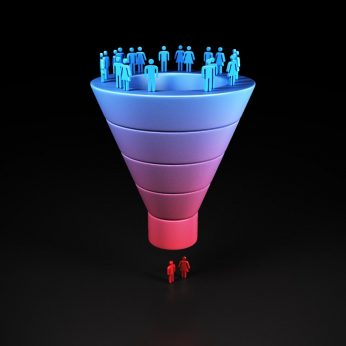Marketers are often held accountable for driving growth. Yet, it is elusive for many companies, which is why Gartner found in a survey that generating growth is the top priority for CEOs. Prospex.ai commissioned an independent survey among more than 750 decision makers in U.K. businesses to identify the specific growth-related challenges that companies are facing. They found that 58% indicated that lead generation is a key challenge business leaders face. Over 40% describe their business’ current sales and marketing efforts as “outdated,” with 59% of businesses relying on spreadsheets to track how they are marketing to leads and 33% relying on cold calling to sell to leads. Essentially, a reliance on traditional sales methods such as cold calling, buying data and using spreadsheets is preventing businesses from winning new customers, the research suggests.
Interestingly, the introduction of General Data Protection Regulation (GDPR) in May 2018 negatively impacted 42% of businesses, reducing their databases of leads. Furthermore, 44% believe GDPR made it extremely difficult to capture new leads and effectively market to them.
Nikolas Kairinos, CEO and cofounder of Prospex.ai, said: “Lead generation is the lifeblood of a company, so it is a concern to see so many businesses struggling in this area. Our research shows there is an over-reliance on old methods of lead generation, which may have been the norm decades ago but are inadequate in today’s digital world. Businesses need to adapt to ensure they remain competitive and increase the number of leads that eventually convert into sales. Fortunately, there exists a host of accessible technological solutions to change the way businesses are able to run sales and marketing campaigns, from big data and social media profiling through to artificial intelligence and machine learning.”
Salvatore Minetti, CEO at Fountech Ventures, said: “The lack of sales predictability and the challenge of converting a lead into a customer, be it a consumer or business, is a top concern companies of all sizes face. What’s more, traditional sales and lead generation techniques are typically labor intensive, expensive and time-consuming, with sales and marketing professionals forced to carry out repetitive and tedious tasks in the hope that a lead will eventually convert. That’s why this shift towards automation and AI comes should come as no surprise. By employing creative AI algorithms, lead generation can be performed much more efficiently. It also means that sales and marketing professionals are able to harness real-time data from sources like sales, texts and social media, and use this information to make important strategic decisions.”
